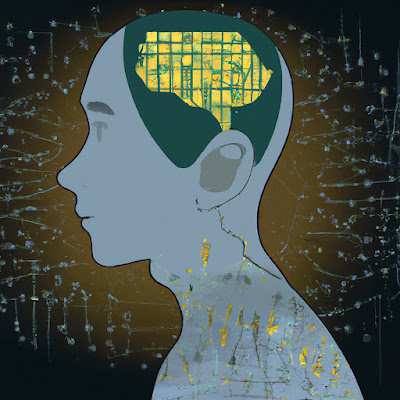For centuries, the old adage "knowledge is power" has been at the forefront in many fields, including education, business, politics, and personal development. But, in today's rapidly-evolving world in the age of artificial intelligence and datafication, having knowledge alone is no longer enough to succeed; it is now essential to apply intelligence and creativity alongside information. While knowledge is certainly valuable, it is no longer enough on its own. As a result, we are witnessing a sharp shift from this traditional view towards a new paradigm that values intelligence over
knowledge.

Intelligence is the ability to learn, adapt, and make decisions based on data and context. Unlike knowledge, which is static and can be memorized, intelligence is dynamic and requires continuous learning and evolution. As our world becomes more complex and interconnected, the ability to process and make sense of information in real-time is becoming increasingly important. In the given context, in a world where information is abundant and readily available, what sets individuals and organizations apart is their ability to make sense of that information and use it to make informed decisions. This is where intelligence comes in, and valuing intelligence over knowledge is thus driven by the increasing availability of information and the need to make sense of it all to gain a competitive edge in various fields. So, a new mantra is emerging: "intelligence is power".
In fact, the notion that "intelligence is power" is being discussed in various contexts, including the emergence of Artificial Superintelligence (ASI) and the power dynamics of intelligence sharing. The phrase is often used as a catchphrase for any discussion about the relationship between intelligence and power. It has been ascribed different meanings by various commentators, including, the idea that people with higher IQs are likely to be more influential and powerful; the idea that people with high IQs tend to be involved in more influential positions; the notion of "superiority" by virtue of having high intelligence have a greater capacity to exercise power in society and therefore, have more influence on society. However, intelligence is not just about being smart or having a high IQ. It's about being able to use information in creative ways, to think outside the box, and to innovate. It's about being able to learn quickly, to adapt to new situations, and to make decisions based on incomplete or ambiguous information.
As aforesaid, with AI becoming more advanced and commonplace in many industries, the ability to make decisions and use critical thinking skills is increasingly valued over simply possessing knowledge. For instance, in the medical industry, AI can assist with clinical decision-making processes and diagnosis, but it is still critical for healthcare professionals to have the ability to apply their intelligence and knowledge to interpret the data and make decisions based on patient needs. This shift is also evident in the business world, where the ability to analyze big data and make strategic decisions based on insights gleaned from that data is essential for success. This shift towards valuing intelligence over knowledge can also be seen in the field of weather prediction. With the help of AI, weather prediction has become more precise and reliable than ever before.
Intelligence is evolving as power in today's fast-paced and data-driven world at an unprecedented pace. Those who can gather, analyze, and act on data in real-time have a significant advantage over those who cannot. With the rise of technologies like artificial intelligence and machine learning, we are seeing an explosion of new tools and platforms that allow us to leverage data and intelligence in new and exciting ways. In the context of artificial superintelligence, the idea that "intelligence is power" speaks to the potential of ASI to drastically reshape the world. As AI systems become increasingly powerful and capable, they could be used to solve problems that are beyond human capabilities, enabling a wide range of new technologies and applications.
The idea can also be used to describe the power of a single individual concerning their intelligence. In this context, a person's intelligence would be the ability to influence other people and create change. As a result, the more powerful one's intelligence, the more control they have in society.
The shift towards intelligence as power is also noted in the context of transnational companies that possess vast amounts of data and intelligence. In the business world, intelligence is considered a valuable asset, and individuals with sharp business minds are highly regarded. This shift towards valuing intelligence over knowledge may reflect the increasing importance of data and information in today's society, as well as the potential for AI and other advanced technologies to transform power dynamics.
This discussion is further complicated by considerations of power dynamics, as intelligence sharing will inevitably involve a shift in power between those who possess it and those who do not. Accordingly. this could give those who control and develop these technologies a great advantage over those who do not.
Accordingly, while knowledge will always be valuable, it's time to shift our focus toward intelligence. By developing our ability to think critically and use the information to drive decision-making, we can position ourselves for success in an ever-changing world. Since the ability to harness intelligence will be a key driver of success in business, education, and life, we can unlock our full potential and achieve greater success than ever before by embracing this new paradigm and focusing on developing our own intelligence. However, it is also an axiom that if AI systems are not properly regulated, they could pose a threat to human life and society as a whole.

